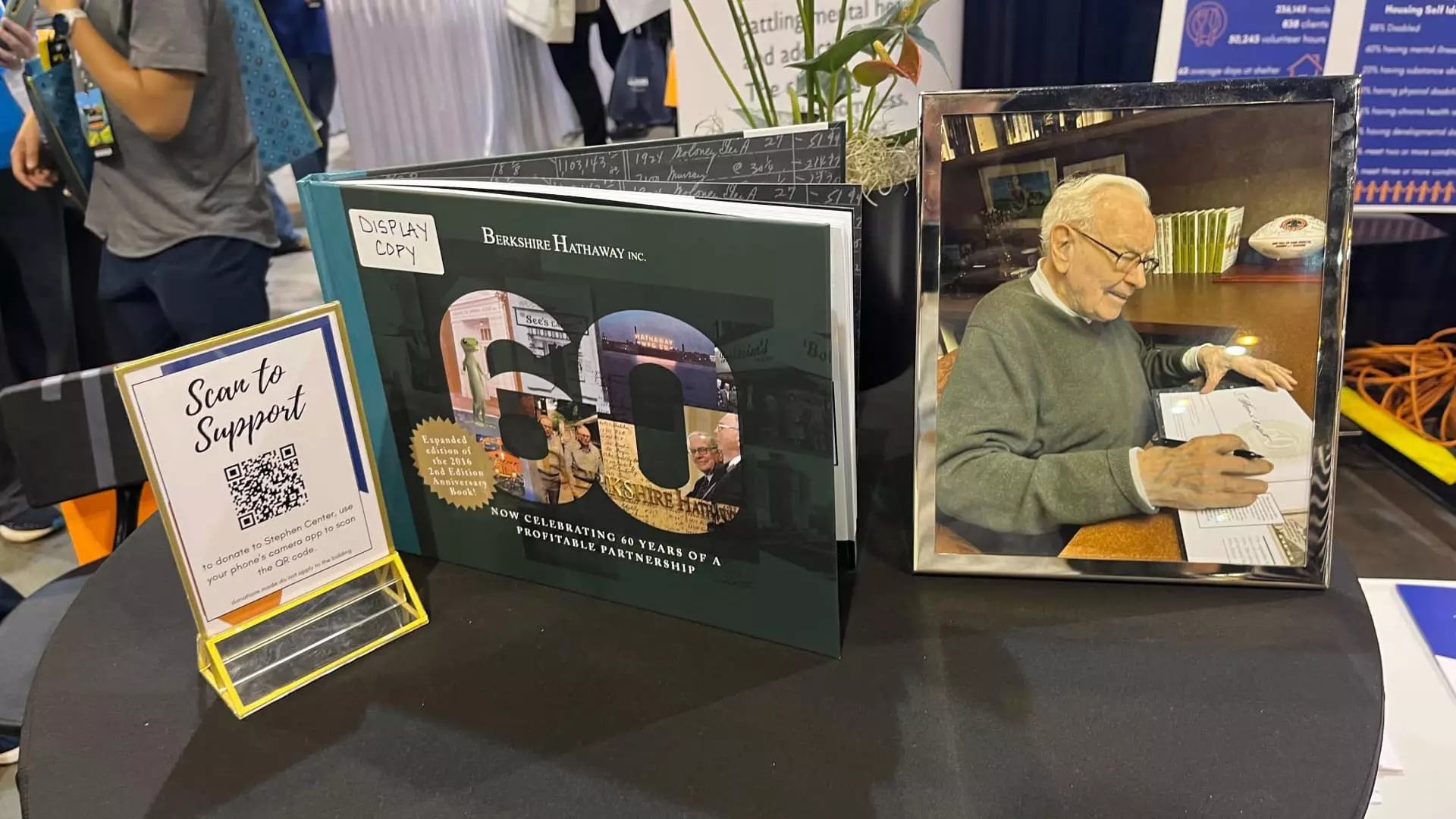In an era where corporate giants often prioritize profit margins over social responsibility, Warren Buffett stands out as a beacon of hope. His recent charity auction, which raised over $1.3 million for local Omaha charities, is a testament to his personal ethos and the potential of philanthropy to catalyze real change in society. This initiative during Berkshire Hathaway’s annual meeting not only showcased the generous spirit within Buffett but also emphasized the urgent need for communal support for local issues—specifically homelessness and addiction recovery in Omaha.
Buffett’s approach to philanthropy has always been deeply intertwined with his financial success. By auctioning off signed memorabilia, he not only created an avenue for charity but added an exclusive allure that appeals to the affections of shareholders. The fact that he pledged to match every dollar raised amplifies the impact of individual contributions, leading to a collective goal that materially changes lives.
The Auction: A Race against Time and Worth
It is remarkable to witness how the auction transformed mere tokens into investment opportunities backed by altruism. The highest bid reached an astounding $100,000, reflecting a shared belief in Buffett’s vision and a commitment to local causes among shareholders. Participants, driven by a genuine desire to contribute, were essentially thrust into a race—not just against one another, but against time, uniting them in a common purpose. Individuals like Matthew Rodriguez, who placed a bold $50,000 bid moments before closing, illustrate this fervor. For him, this was more than a signed book: it was a message of support for a community initiative directly aligned with Buffett’s values.
Interestingly, the auction featured donations from both in-person attendees and remote contributors, demonstrating how Buffett’s influence reaches far beyond Omaha. Already, more than $45,000 was contributed by those unable to attend the annual meeting but who wanted to play a part in the initiative. This phenomenon of an engaged community backing a shared purpose could serve as a model for how local charities can leverage figures like Buffett for greater visibility and support.
Turning the Spotlight on Local Issues
Buffett’s charitable focus isn’t merely about financial contributions—it introduces a larger conversation about the growing homelessness problem in Omaha. With a reported nearly 10% increase in the homeless population, including families, children, and senior citizens, the Stephen Center’s work has never been more crucial. The organization is not just a shelter; it plays a vital role in restructuring lives and restoring dignity. As Stephen Center CEO Chris Knauf articulated, the funds raised through Buffett’s initiative will directly impact renovations and construction aimed at providing comprehensive services.
When philanthropy is done right, it ensures that the public’s attention redirects towards significant social issues. By using his annual gathering as a platform to spotlight such causes, Buffett amplifies their discourse, encouraging other wealthy individuals and corporations to do the same. As the wealthy elite largely shape public policy, showing that they can disburse their resources toward meaningful community initiatives could induce a ripple effect.
Investing in Future Generations
Buffett’s view on wealth and inheritance merits thoughtful consideration in this context. He has pledged to give away 99% of his fortune, eloquently arguing against the creation of dynasties through colossal inheritances. By funneling his wealth into charitable endeavors, he urges the well-off to recognize their collective responsibility to uplift those less fortunate. This ethos is particularly relevant as we deal with economic disparities exacerbated by recent global challenges.
His message resonates well within a center-right wing liberal context, advocating for responsible capitalism—a system that rewards success while also ensuring that it does not ignore pressing societal challenges. This reflects a sensible balance; profit should yield greater returns to society rather than perpetuate cycles of inherited power.
Celebrating Community Through Generosity
The beauty of Buffett’s initiatives lies not just in the financial aid provided but in the community spirit they foster. These acts of generosity go beyond monetary value; they inspire a deeper connection between individuals and their local communit. Regular citizens gain an understanding that their contributions can combat systemic issues, and successful businesspeople can pivot their talents toward philanthropy.
Moreover, as Buffett’s endeavors are underscored by his famed humility, they encourage others to follow suit without needing the spotlight. Ultimately, this sets a tone for a more compassionate society—where charitable giving transforms from an obligation into an opportunity for collective growth.
In a world fraught with division and uncertainty, Buffett’s charity auctions remind us that the best investments do not merely fill bank accounts, but also touch hearts and uplift communities. These initiatives can, and should, spark discussions about how wealth can be stewarded for the betterment of society as a whole.

